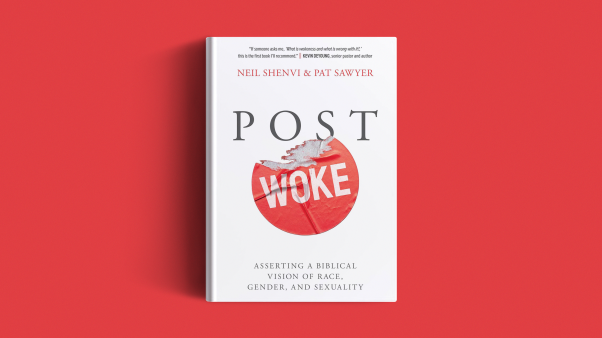James Gilmore is co-author (with Joseph Pine II) of Authenticity: What Consumers Really Want (Harvard Business School Press, 2007). Gilmore is a Christian who views himself as “solidly reformed” and has spoken at a number of ministry conferences. In his first Leadership interview in 2001, Gilmore took our editors on a tour of Starbucks, ESPN Zone, and American Girl to demonstrate “the experience economy.” Now Gilmore says beyond the created “experience,” people are looking for authenticity. Here, in his own words, he tells us what that has to do–or not do–with the church.
Our new book talks about how different consumer sensibilities have emerged with the rise of different economies. With the shift from an agrarian to an industrial economy, cost emerged as the primary factor in buying. In going from an industrial economy to a service economy, the dominant concern became quality. Now, as we move into an experience economy where practically everything is staged, consumers seek authenticity. … As a business guy, I’m always cautious about taking any business thinking and applying it to the church. Don’t take this stuff about the experience economy and make worship a staged experience. Consumerism has come to dominate contemporary evangelicalism. We’re becoming a reflection of the world, instead of standing apart from the world. The church has moved to “spectacalism,” which can become a false gospel. … All of life is being commodified. The church should be the one place that stands apart and says, We have nothing for sale. We only offer a free gift. The church ought to be the place where people see that there’s something different about this place and this people from anything one experiences elsewhere in the commercial marketplace. … To me, the church should not aim to be “real” as an end. The church is there to proclaim truth. Trying to be hip and cool and real does a disservice to the church. We’re not called to be successful. We’re called to be obedient, even if they don’t come. Ministry leaders should think more like Noah, of being part of a remnant that is faithful. If somebody doesn’t find you objectionable, I wonder if you’re preaching the full counsel of God. … To some extent, if people view the church as being fake, they will never enter. But the extent to which the church has become a business, with food courts, skate parks, basketball courts, etc.–I think people look at it and say, That’s not really a church. That’s fake. … If you truly see people, that comes off as real. If you love, you will automatically come off as real. You don’t need to strive to be real. Do what the Bible says you should be doing: giving, serving, loving. Nowhere, nowhere, do we find the modern-day sense of authenticity in Scripture. But Scripture is replete with references to true and false. Real is telling people about their sin and their need for repentance and their need for a Savior. The church’s function is to proclaim that which is unchanging. … I am convinced that a juxtaposition of opposites is a good way of engendering authenticity. [Best Buy’s] Geek Squad is one of my favorite examples. The Geek Squad works because they are cool geeks. Working with that tension comes across as real. The church has got it’s own great set of polarities: belief and unbelief; salvation and damnation. We need to point them out and preach them explicitly, in tension. … Read my book to understand the culture that you’re preaching to, not as an operating model for your church. I don’t want a church or a pastor who doesn’t care about culture. But at the same time, I don’t want them to be so steeped in the culture that we lose the point of why are we really doing this.
Copyright © 2008 by the author or Christianity Today/Leadership Journal.Click here for reprint information on Leadership Journal.









